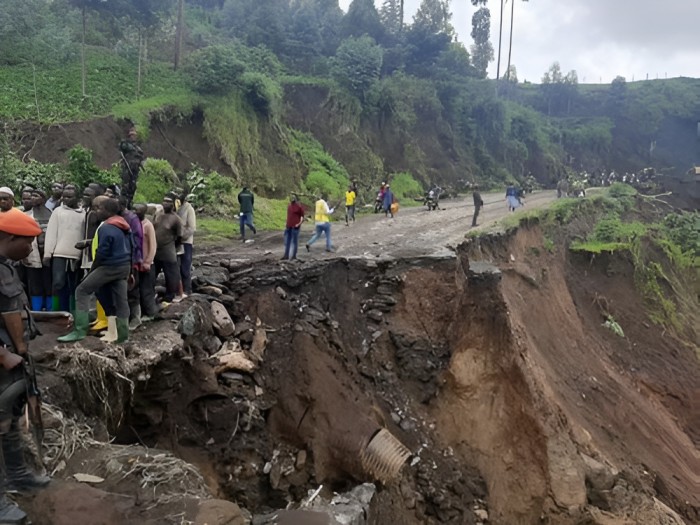Seventeen bodies have been recovered from a collapsed artisanal mining site in Masisi territory, North Kivu, following a landslide that struck the Bibatama mine on Thursday, June 19, while dozens of miners were working underground.
The victims were retrieved from shafts near the surface, raising fears that many more miners remain trapped beneath the debris.
“According to local sources, only the bodies nearest to the surface could be retrieved. Many more victims may still be buried,” reported Radio Okapi.
Justin Ndayishimiye, a local lawmaker and former coordinator of artisanal mining in Rubaya, blamed the tragedy on dangerous and unregulated mining conditions.
“They only managed to retrieve 17 bodies. There are hundreds more believed to be buried. This operation lacks any form of regulation. The shafts are poorly maintained, there are no supports, it's organised looting,” he told the station.
Ndayishimiye called for the immediate shutdown of the Rubaya site, which is said to be under the control of the M23 armed group, until proper oversight is reinstated.
Human rights groups supported the demand and urged the government to compensate families of the victims. They also condemned the lack of safety systems in the mining sector, which many say operates with no meaningful control.
Experts link such disasters to unchecked human activity, particularly artisanal mining and deforestation.
Studies by researchers from KU Leuven, the Royal Museum for Central Africa, and Université Libre de Bruxelles have shown that landslides are becoming more frequent in eastern DRC, especially where forests have been cleared.
“With our reconstruction, we were able to show that deforestation is often linked to smallholder agriculture in the region, but also indirectly to mining activities in mineral-rich soils. Deforestation has significantly increased landslide occurrences," said Arthur Depicker, a geographer at KU Leuven.
"Scientific literature suggests that the impact of such drastic changes in forest cover is far more consequential than that of climate change.”
He warned that landslides are most deadly in steep, populated areas where people live and work due to conflict or poverty.
“We expect the highest number of fatalities where people are forced to inhabit steep, mountainous areas, whether to grow food or as a result of conflict or economic activities such as artisanal mining. These terrains are most prone to landslides, particularly where deforestation has taken place,” he said.
Depicker added that the risks are not static.
“The historical legacy of deforestation and societal shifts continues to shape the landslide disaster risks faced by communities today," he said.

